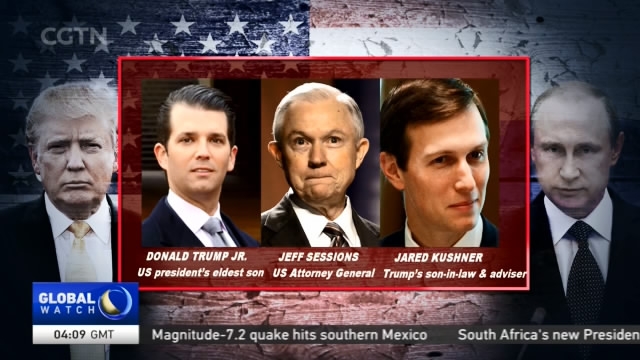
13:07, 17-Feb-2018
US Russia Investigation: Key events and figures

President Trump and his aides have consistently denied claims that his campaign was in contact with Russian officials trying to swing the 2016 elections. Here's a quick run down of some key points.
For more than a year, the Trump-Russia affair has dominated headlines and mired the Trump administration in controversy. Now, former FBI director Robert Mueller is leading one of the most high-profile political inquiries in US history.
The latest key figure to be interviewed by Mueller is President Trump's former chief strategist, Steve Bannon. Many believe he holds crucial information on the Trump administration, including why Trump fired former FBI director James Comey, who was then leading the Russia investigation.
Bannon left his White House post in August amid reports of tension with other aides. It's unclear why Bannon was questioned, but sources close to the case say he answered every question during the 20-hour interview.
Prior to the latest indictments, the special counsel brought charges against four people: former US national security advisor Michael Flynn, who admitted to lying to the FBI about meeting with the Russian ambassador to the US prior to Trump's inauguration; former Trump campaign advisor George Papadopoulos, who also lied about meeting with alleged Russian intermediaries; former campaign chair Paul Manafort; and his former business associate Rick Gates, who has been charged with money laundering unrelated to the election.
Other people in Trump's circle who have had contacts with Russians include his son-in-law Jared Kushner, his son Donald Trump Junior, and Attorney General Jeff Sessions.
There are also four ongoing congressional investigations. Last week, President Trump blocked the release of a Democrat memo due to national security concerns. The memo is a rebuttal to a Republican document that claims the FBI investigation is biased against Trump. Democrats in Congress have accused Trump of trying to hide the truth.

SITEMAP
Copyright © 2018 CGTN. Beijing ICP prepared NO.16065310-3
Copyright © 2018 CGTN. Beijing ICP prepared NO.16065310-3